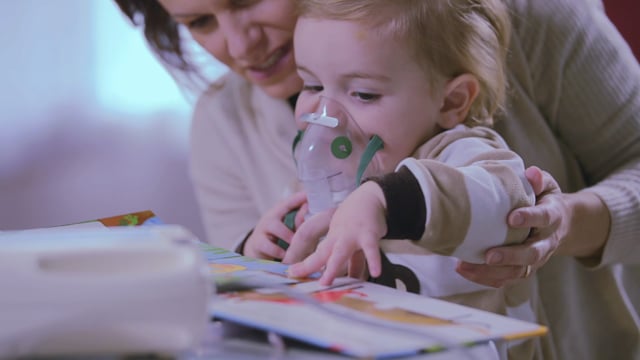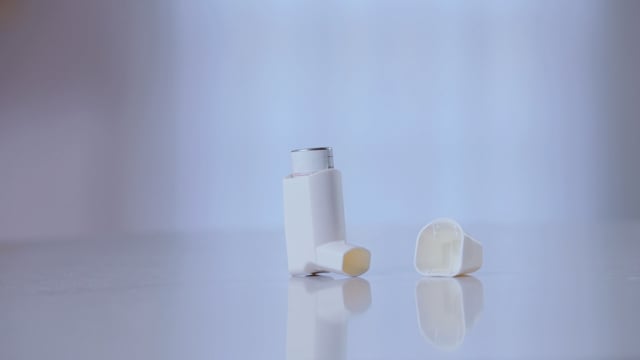- Home
- Humana Medicaid
- Kentucky Medicaid
- Medicaid extras
- Health and wellness
- Parents Home
- Para Padres
- A to Z Dictionary
- Allergy Center
- Asthma
- Cancer
- Diabetes
- Diseases & Conditions
- Doctors & Hospitals
- Emotions & Behavior
- First Aid & Safety
- Flu (Influenza)
- Food Allergies
- General Health
- Growth & Development
- Heart Health & Conditions
- Homework Help Center
- Infections
- Newborn Care
- Nutrition & Fitness
- Play & Learn
- Pregnancy Center
- Preventing Premature Birth
- Q&A
- School & Family Life
- Sports Medicine
- Teens Home
- Para Adolescentes
- Asthma
- Be Your Best Self
- Body & Skin Care
- Cancer
- Diabetes
- Diseases & Conditions
- Drugs & Alcohol
- Flu (Influenza)
- Homework Help
- Infections
- Managing Your Weight
- Medical Care 101
- Mental Health
- Nutrition & Fitness
- Q&A
- Safety & First Aid
- School, Jobs, & Friends
- Sexual Health
- Sports Medicine
- Stress & Coping
Asthma Medicines
Asthma medicines help kids breathe easy. They open the airways and help to ease inflammation that can sometimes make it hard to breathe.
When kids take their medicines as directed and avoid asthma triggers, their asthma is under control and they can do just about anything.
How Do Asthma Medicines Work?
Asthma medicines generally work in two ways:
- Some medicines work right away to relax the muscles around the airways and open them, providing quick relief of symptoms. That's why they're often called quick-relief,"fast-acting," or "rescue" medicines. They are usually inhaled (breathed in) using an inhaler or nebulizer. The most commonly used medicines for the quick relief of symptoms are bronchodilators (such as albuterol).
- Other medicines work over time to ease inflammation, which reduces swelling of the airways and limits mucus production. This can help to prevent symptoms. These medicines are often called long-term control, "controller," or "maintenance" medicines. They usually need to be taken every day, even when a person feels fine and has no symptoms.
Some kids with mild asthma might use anti-inflammatory medicines only during times of increased symptoms instead of every day. These are also usually inhaled, but some types are swallowed as a pill or liquid. A variety of medicines can ease inflammation, but inhaled corticosteroids are used most often. They're a safe and proven form of asthma treatment and are different from performance-enhancing steroids used by some athletes.
Some kids will get both types of medicines from one inhaler device. They might need to use this “combination” inhaler every day to prevent symptoms, with added doses from it when they have symptoms. Some older kids with mild asthma might use a combination inhaler only for quick relief when they have symptoms, or before they exercise. Your health care team will help you figure out which inhaler is best for your child, and how and when to use it.
For a more severe flare-up, sometimes doctors prescribe oral (taken by mouth) steroids for 5–7 days. These work more quickly to reduce inflammation when inhaled medicines aren’t quite enough. If someone has a flare-up that's severe enough to need treatment in the ER, they might get medicines by injection.
What Else Should I Know?
When asthma medicines are given through an inhaler, it's important to use a spacer, which helps deliver as much medicine as possible into the airways.
The medicine your child uses for quick symptom relief should always be kept on hand. That means at home, at school, at the mall, at sports practice, and even on vacation. Talk with your doctor about how often your child needs it. If it's too often, the doctor also might prescribe a daily anti-inflammatory medicine to help prevent asthma flare-ups.
Your doctor will decide which type of medicine your child needs based on their symptoms and how often they happen. Tell your doctor about any concerns or changes in the symptoms. It can help to keep track of these changes in an asthma diary. That will help the doctor find the best treatment and make updates when needed.
For many kids, the type of medicine used and its dosage will change as they grow and their symptoms change. Always follow the asthma action plan from your doctor so you know what to do.

Using a Nebulizer
Learn step-by-step how to use a nebulizer for asthma.

Using a Dry Powder inhaler
Learn step-by-step how to use a dry powder inhaler for asthma.

Using an Inhaler With a Spacer
Learn step-by-step how to use an inhaler with a spacer for asthma.
- Asthma (Topic Center)
- What if Kids Don't Take Their Asthma Medicine?
- What's an Asthma Action Plan?
- What Are Nebulizers and Inhalers?
- Asthma Flare-Ups
- Asthma Triggers
- Managing Asthma
- Asthma

© 1995- The Nemours Foundation. KidsHealth® is a registered trademark of The Nemours Foundation. All rights reserved.
Images sourced by The Nemours Foundation and Getty Images.